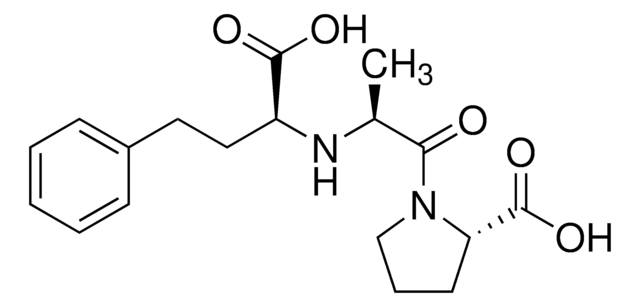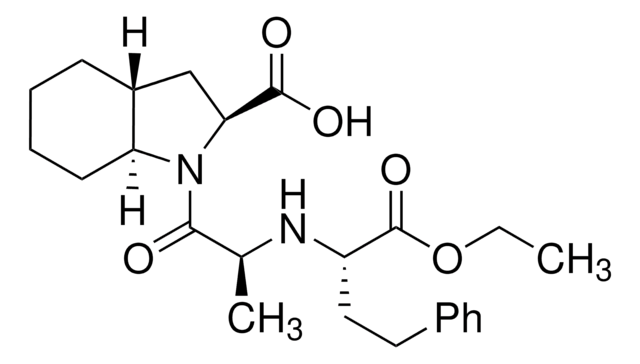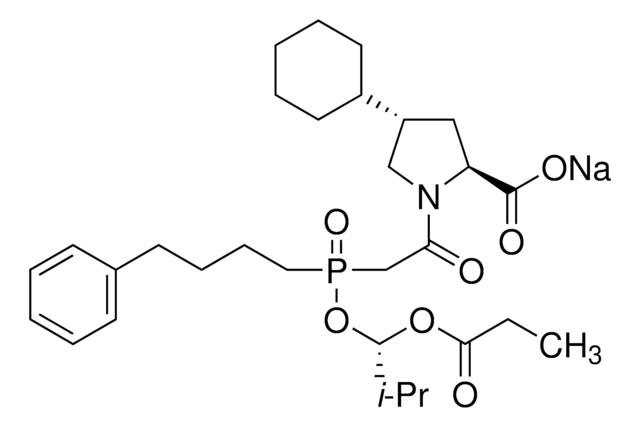E6888
Enalapril maleate salt
powder, ≥98% (TLC)
Sinónimos:
(S)-N-[1-(Ethoxycarbonyl)-3-phenylpropyl]-Ala-Pro maleate salt
About This Item
Productos recomendados
assay
≥98% (TLC)
form
powder
color
white to off-white
solubility
methanol: ≥50 mg/mL, clear, colorless to yellow
originator
Merck & Co., Inc., Kenilworth, NJ, U.S.
SMILES string
C[C@@H](C(N1[C@H](C(O)=O)CCC1)=O)N[C@H](CC(OCC)=O)CCC2=CC=CC=C2.O=C(OO)/C=C\C(O)=O
InChI
1S/C21H30N2O5.C4H4O5/c1-3-28-19(24)14-17(12-11-16-8-5-4-6-9-16)22-15(2)20(25)23-13-7-10-18(23)21(26)27;5-3(6)1-2-4(7)9-8/h4-6,8-9,15,17-18,22H,3,7,10-14H2,1-2H3,(H,26,27);1-2,8H,(H,5,6)/b;2-1-/t15-,17-,18-;/m0./s1
InChI key
UQKQUZOIQFOJOI-KJHLASMFSA-N
¿Está buscando productos similares? Visita Guía de comparación de productos
General description
Application
- to reduce albumin excretion rate (AER) and glomerular lesions
- to examine the effects of enalapril pre-treatment on myocardial injury
- to investigate its efficacious doses and schedules for mitigation of radiation lung injury
Biochem/physiol Actions
Features and Benefits
signalword
Warning
hcodes
Hazard Classifications
Repr. 2
Storage Class
11 - Combustible Solids
wgk_germany
WGK 2
ppe
Eyeshields, Gloves, type N95 (US)
Certificados de análisis (COA)
Busque Certificados de análisis (COA) introduciendo el número de lote del producto. Los números de lote se encuentran en la etiqueta del producto después de las palabras «Lot» o «Batch»
¿Ya tiene este producto?
Encuentre la documentación para los productos que ha comprado recientemente en la Biblioteca de documentos.
Los clientes también vieron
Artículos
Discover Bioactive Small Molecules for ADME/Tox
Discover Bioactive Small Molecules for ADME/Tox
Discover Bioactive Small Molecules for ADME/Tox
Discover Bioactive Small Molecules for ADME/Tox
Nuestro equipo de científicos tiene experiencia en todas las áreas de investigación: Ciencias de la vida, Ciencia de los materiales, Síntesis química, Cromatografía, Analítica y muchas otras.
Póngase en contacto con el Servicio técnico














